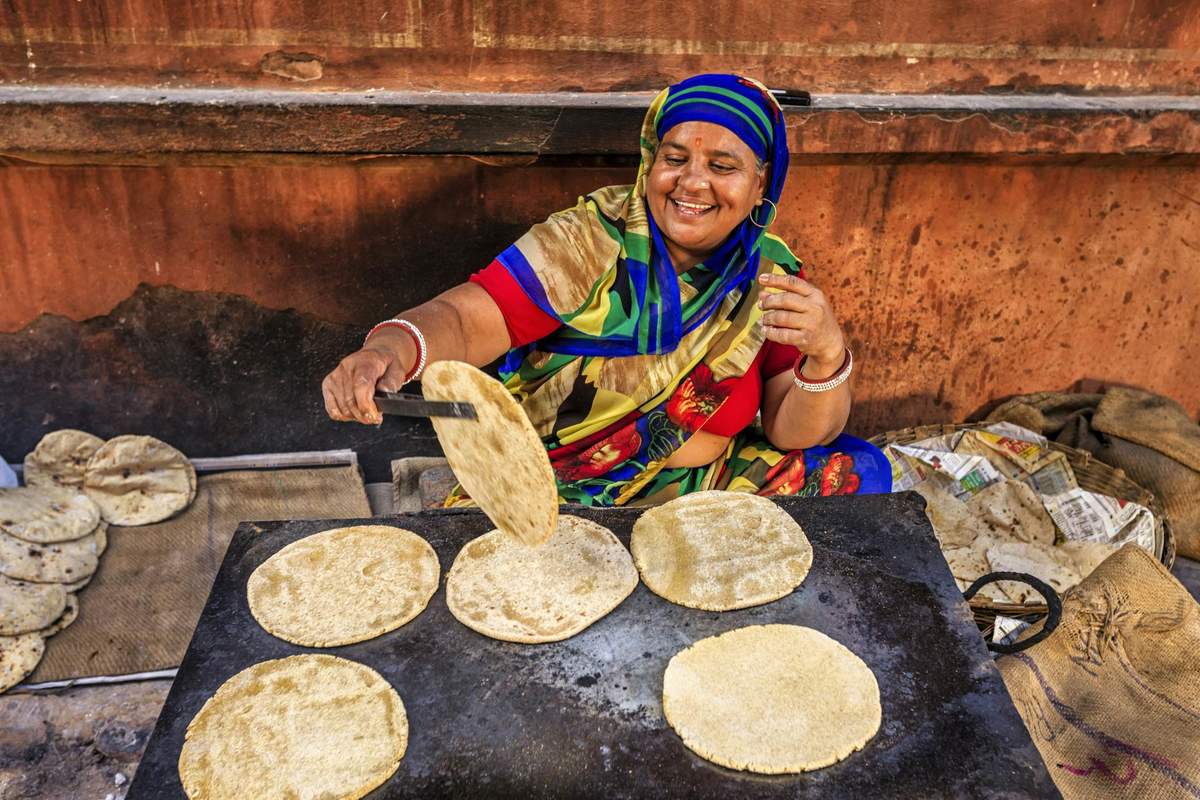
If there’s one thing you can guarantee when travelling somewhere new, it’s an unexpected cost you didn’t budget for – an irresistible detour, a magical momento you just have to have, a few extra days in somewhere amazing.
Take heart though; in Delhi, you can stretch your budget by exploring a string of free sights and attractions, leaving more left over for those little indulgences.

When visiting India’s historic capital, it’s worth paying out for big-hitting sights such as the Red Fort and Qutb Minar, but don’t overlook the abundant free sights and experiences in this fascinating city. Take your pick from verdant parkland, centuries-old monuments, mysticism and faith, colonial pomp and circumstance and exploring contemporary Indian culture and the arts.

Keeping the faith at the Bahai House of Worship
This lotus-shaped temple was conceived and created by architect Furiburz Sabha in the suburbs of South Delhi, close to the burgeoning commercial district of Nehru Place. In step with the tenets of the Bahai religion, the house of worship is open to all and everyone is invited to worship according to their own customs. Reflected in nine encircling pools, the gleaming marble structure is set in expansive gardens that teem with visitors, yet it retains a peaceful air of prayer and contemplation. Dusk finds the monument painted in surreal colours by floodlights as the sun sinks over the cityscape.

Soulful stirrings at the Nizamuddin Auliya shrine
You can step back seven centuries at the shrine of Delhi’s most beloved Sufi mystic. Every Thursday evening, singers fill the air with soulful qawwalis (spiritual songs) honouring both the Sufi mystic Hazrat Khwaja Syed Nizamuddin Auliya and his disciple, the poet Amir Khusrao, also buried here. A warren of narrow streets lined with hawkers, mendicant holy men and snack stands leads to the shrine, which is a riot of colours, fragrant with heady incense and sweet-smelling rose petals. Irrespective of faith, gender, or age, the Nizamuddin Dargah is one of Delhi’s most emotive and stimulating spots.

Calm green spaces and crumbling mausoleums
The Lodi Gardens, formerly Lady Willingdon Park, are one of the city’s favourite green spaces, visited by neighbourhood residents for daily constitutionals, and a favourite spot for canoodling couples and picnicking families. Sitting pretty in the heart of New Delhi, these sprawling but well-tended acres are criss-crossed with tree-lined walking and jogging paths. Between the flowerbeds are crumbling medieval monuments – mosques, tombs, and ceremonial bridges harking back to vanished Afghan dynasties – lending the park a romantic demeanour; unsurprisingly, it’s a favourite spot for romantic selfies.

Pomp and circumstance, Indian style
Despite only being introduced a decade ago, the splendid ceremony held once a week at the Rashtrapati Bhavan (President's Estate) is reminiscent of the richest excesses of India’s colonial history. Highlights of this public show of military precision include an equestrian display by the President’s Body Guard – an elite mounted unit founded in 1773 to escort and protect the British governor-general, and later the presidents of independent India –and a foot drill by the Army Guard Battalion, selected from one of India’s infantry regiments every three years on rotation. There’s no fee but spectators are required to present photo IDs at the point of entry. Drills take place on Saturdays at 8am (15th March to 14th August), 9am (15th August-14th November) or 10am (15th November-14th March).

Cultural synergy at Habitat World
After all the history, take a moment to explore Delhi’s contemporary culture. Part of the landmark India Habitat Centre, Habitat World was founded to promote synergies between cultural institutions and artistically minded individuals, and there’s always something interesting to see. This is where Delhi’s arty and scholarly set can be found admiring modern artworks at the Visual Arts Gallery, sitting in on academic presentations at the Stein auditorium or encouraging amateur performers in the centre’s public amphitheatre. If you work up an appetite, you can fall back on the popular All American Diner.

Raj resonance at Delhi's Coronation Park
Almost forgotten, Delhi's calm Coronation Park was created to mark the centenary of the 1911 Delhi Durbar, a grand assembly of Indian royal families hosted by Viceroy Lord Hardinge. A major event on the colonial calendar, durbars honoured the ascension of a new monarch to the British throne, which also enshrined the king or queen as sovereign ruler of India. These grand occasions were marked by processions, elephant parades, polo tournaments and parties, but today, the parade ground slumbers quietly, except for the occasional cricket match between locals, or when promenading couples stroll by. In the heart of the 60-acre park is a stone column, marking the spot where King George V anointed Delhi as the new capital of British India, and five statues of the kings and viceroys who once ruled India, now quietly fading into history.
See India through international eyes
A string of foreign nations have established cultural centres in Delhi, offering a profusion of cultural experiences, from art shows to classical concerts and seminars on history, gastronomy and cultural traditions from around India and the world. The American Center (in.usembassy.gov/education-culture/american-space-india) on Kasturba Gandhi Marg, the Japan Foundation (jfindia.org.in) at Lajpat Nagar, and the Alliance Francaise (delhi.afindia.org) at KK Birla Marg are good places to start. Call ahead or visit their respective websites for schedules – concerts and performances are advertised ahead of time and most centres have well-stocked libraries and film clubs showing international movies with English subtitles.
Plan with a local





